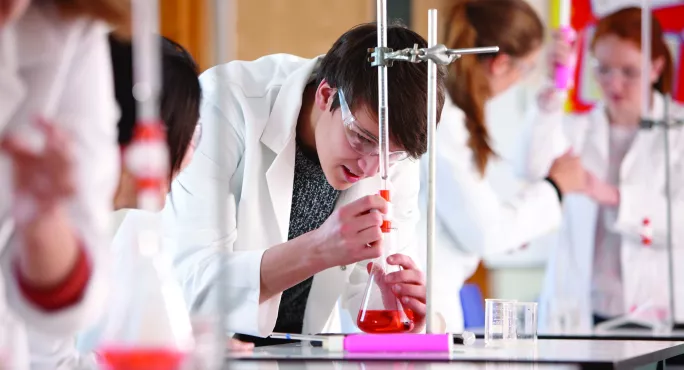Science teachers are more likely to switch schools, and to leave the profession, than their colleagues teaching other subjects, according to research.
A new study suggests that the chances of science teachers leaving within five years are significantly greater, with those at the start of their careers more likely to go.
The findings come amid continuing concerns about teacher shortages in England’s state schools, particularly in key subjects such as physics.
The study, commissioned by Wellcome, shows that the odds of science teachers leaving their school - either to teach elsewhere or to quit the classroom entirely - within five years are 26 per cent higher than for similar teachers of other subjects.
Among newly qualified teachers (NQTs) of science alone, the odds of them leaving their first school within five years are 35 per cent higher compared with their fellow new colleagues.
In addition, the chances of a science NQT with a physics or engineering degree leaving are 87 per cent higher than for similar NQTs teaching other subjects.
The study used government data to analyse science teacher retention rates in England’s state-funded secondary schools.
Further analysis just on teachers leaving the profession entirely shows that the odds of science teachers quitting within five years are 5 per cent higher, and for newly qualified teachers of the subject, the odds are 20 per cent higher than for their similar peers.
Science teachers ‘can earn more elsewhere’
Study author Rebecca Allen, of Education Datalab, said that there are more factors that could encourage science teachers to leave the profession, particularly at the start of their careers, such as the fact they could earn more with the degrees they have in other industries.
“The start of a school career is really tough for anybody, and science teachers have greater opportunities outside of teaching,” she said. “They are more likely to walk away simply because they have more chances to walk away.
“The other thing in science is that we ask teachers to teach quite a long way outside their subject.
“It’s a tough call teaching science compared to other subjects.”
For example, she said, teachers with a physics degree are often asked to give lessons in biology. Many are not keen on this, she said, adding that there is evidence that one consequence is that some physics teachers, who do not want to give lessons in biology, will look to go and teach maths instead.
The study concludes that giving teachers science-related professional development (CPD) during their careers could help to keep them in the classroom.
It also notes that, given the relative shortage of science teachers, it might be expected that they are paid more than their colleagues teaching other subjects.
But researchers found that, once factors such as level of experience were taken into account, science teachers actually get slower pay rises with a salary gap of around £300 after six years.
Dr Hilary Leevers, head of education and learning at Wellcome, said: “We want all young people to experience high-quality science education and this simply isn’t possible without well-trained, specialist science teachers.
“Most school leaders already recognise that high-quality CPD leads to more engaging and effective teaching, but this research shows that it helps to keep them in the profession, too.
“This makes a powerful case for school leaders and governors to prioritise this for their science teachers.”
Want to keep up with the latest education news and opinion? Follow Tes on Twitter and like Tes on Facebook




